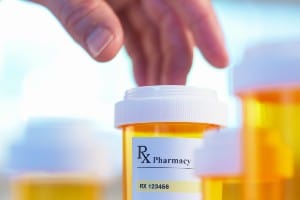About The Drug Pondimin aka Fenfluramine - Removed from US Market

Find Pondimin side effects, uses, warnings, interactions and indications. Pondimin is also known as Fenfluramine - Removed from US Market.
Pondimin

| About Pondimin aka Fenfluramine - Removed from US Market |
|---|
What's The Definition Of The Medical Condition Pondimin?Clinical Pharmacology Drug Description DESCRIPTION Pondimin (fenfluramine - removed from us market) (fenfluramine hydrochloride) is an anorectic drug for oral administration.
Immediate release tablets containing 20 mg fenfluramine hydrochloride are orange, scored, compressed tablets engraved AHR and 6447.
Inactive Ingredients: (fenfluramine - removed from us market) Corn Starch, FD&C Yellow 6, Magnesium Stearate, Microcrystalline Cellulose, Silicon Dioxide, Sodium Lauryl Sulfate.
Fenfluramine HCl has the following chemical name: N-ethyl-alpha-methyl-3-(trifluoromethyl) benzeneethanamine hydrochloride.
Indications & Dosage Medication Guide PATIENT INFORMATION See WARNINGS, PRECAUTIONS and CONTRAINDICATIONS.
Overdosage & Contraindications OVERDOSE Signs and Symptoms Only limited data have been reported concerning clinical effects and management of overdosage of fenfluramine.
Agitation and drowsiness, confusion, flushing, tremor (or shivering), fever, sweating, abdominal pain, hyperventilation, and dilated non-reactive pupils seem frequent in fenfluramine overdosage.
Reflexes may be either exaggerated or depressed and some patients may have rotary nystagmus.
Tachycardia may be present, but blood pressure may be normal or only slightly elevated.
Convulsions, coma, and ventricular extrasystoles, culminating in ventricular fibrillation, and cardiac arrest, may occur at higher dosages.
Human Toxicity Less than 5 mg/kg are toxic to humans.
Five-ten mg/kg may produce coma and convulsions.
Reported single overdoses have ranged from 300 to 2000 mg; the lowest reported fatal dose was a few hundred mg in a small child, and the highest reported nonfatal dose was 1800 mg in an adult.
Most deaths were apparently due to respiratory failure and cardiac arrest.
Toxic effects will appear within 30 to 60 minutes and may progress rapidly to potentially fatal complications in 90 to 240 minutes.
Symptoms may persist for extended periods depending upon the dose ingested.
Management After overdosage, only a small percentage of the drug is excreted in the urine.
Forced acid diuresis has been recommended only in extreme cases in which the patient survives the early hours of intoxication but fails to show decisive improvement from other measures.
Hemodialysis and peritoneal dialysis are of theoretical advantage but have not been used clinically.
Reportedly the treatment of fenfluramine intoxication should include: Gastric Lavage: (but not drug-induced emesis because the patient may become unconscious at a very early stage.)In the event that gastric lavage is not feasible due to trismus, consult an anesthesiologist for endotracheal intubation after administration of muscle relaxants; only then gastric evacuation should be t.i.d.
Administration of activated charcoal after emesis or lavage may reduce absorption of drug.
Monitoring of Vital Functions: If necessary, mechanical respiration, defibrillation, or "cardioversion" should be instituted.
Drug Therapy: Diazepam or phenobarbital for convulsions or muscular hyperactivity.
In the presence of extreme tachycardia: propranolol; in the presence of ventricular extrasystoles: lidocaine; in the presence of hyperpyrexia: chlorpromazine.
Since fenfluramine has been shown to have a slight lowering effect on blood sugar in some patients, the theoretical possibility of hypoglycemia should be borne in mind although this effect has not been reported in cases of clinical overdosage.
CONTRAINDICATIONS Fenfluramine is contraindicated in patients with glaucoma or with hypersensitivity to fenfluramine or other sympathomimetic amines.
Do not administer fenfluramine during or within 14 days following the administration of monoamine oxidase inhibitors, since hypertensive crises may result.
Patients with a history of drug abuse should not receive this drug.
Do not administer fenfluramine to patients with alcoholism since psychiatric symptoms (paranoia, depression, psychosis) have been reported in a few such patients who had been administered this drug.
Fenfluramine should also generally be avoided in patients with psychotic illness.
There have been reports of schizophrenic patients who have become agitated, delusional, and assaultive.
A fatal cardiac arrest has been reported shortly after the induction of anesthesia in a patient who had been taking fenfluramine prior to surgery.
Fenfluramine may have a catecholamine-depleting effect when administered for prolonged periods of time; therefore, potent anesthetic agents should be administered with caution to patients taking fenfluramine.
If general anesthesia cannot be avoided, full cardiac monitoring and facilities for instant resuscitative measures are a minimum necessity.
Side Effects & Drug Interactions Warnings & Precautions |
More Medical Conditions
A | B | C | D | E | F | G | H | I | J | K | L | M | N | O | P | Q | R | S | T | U | V | W | X | Y | Z
Medical Conditions Definitions Of The Day
- Nephron Nephrosis, Lower ‐ Acute kidney failure resulting from destruction of tubular epithelial…
- Esophagitides, Reflux ‐ Inflammation of the esophagus caused by reflux of gastric juice…
- Somatotropin Hypersecretion Syndrome (Acromegaly) ‐ A disorder caused by excessive secretion of SOMATOTROPIN, characterized…
- BU-3839T ‐ A synthetic TETRACYCLINE derivative with similar antimicrobial…
- Liner, Denture ‐ Material applied to the tissue side of a denture to provide a…
- Ocotea ‐ A plant genus in the…
- Para-Azobenzenearsonate ‐ A hapten capable of eliciting both antibody formation and delayed…
- Foscarnet Disodium Salt ‐ An antiviral agent used in the treatment of cytomegalovirus retinitis.…
- Lymphoma Virus, Burkitt ‐ The type species of LYMPHOCRYPTOVIRUS, subfamily GAMMAHERPESVIRINAE,…
- Apo-A ‐ Lipoproteins found in human blood serum in the high-density and…